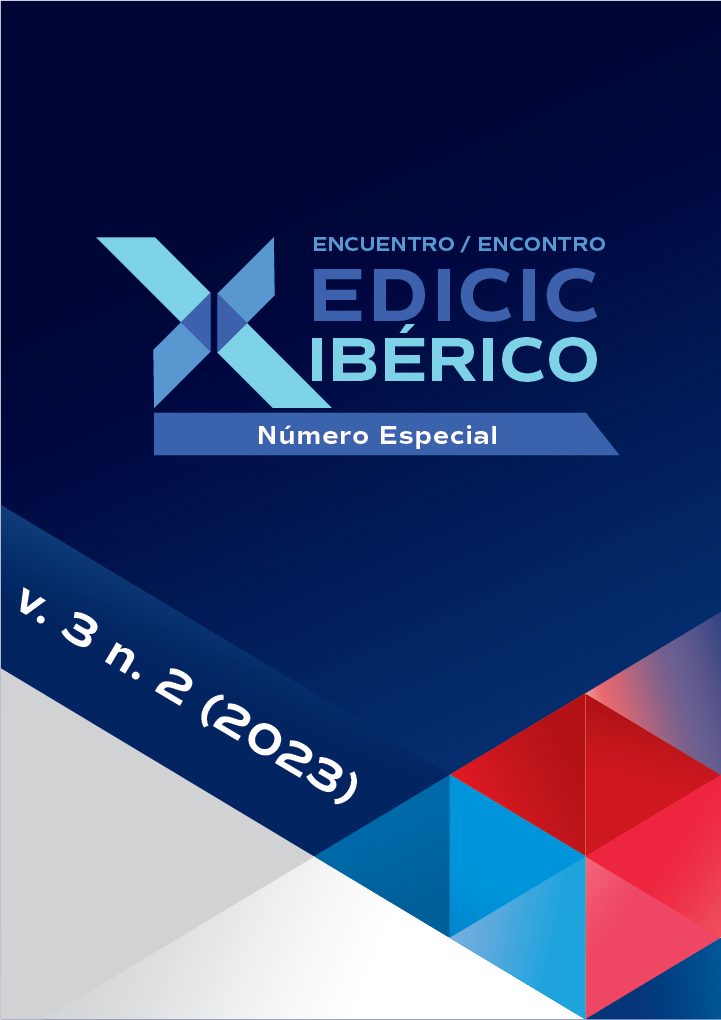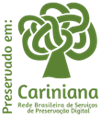Evaluación de la integridad científica en revistas de salud: un análisis de las directrices para la presentación de artículos
DOI:
https://doi.org/10.62758/re.v3i2.284Palabras clave:
Integridad Científica, Ética de la Información, Originalidad, Revistas Científicas – Brasil, SaludResumen
Se considera una realidad entre las revistas científicas que son susceptibles de malas conductas académicas –como plagio, autoplagio y falta de originalidad– por parte de los autores que envían manuscritos (artículos, informes de investigación, ensayos, etc.). Para evitar tal desorden en el campo científico, se adoptan enfoques y lineamientos para que la presentación de manuscritos cumpla con la integridad científica en las diferentes áreas del conocimiento. Para este estudio, se adoptó como universo de investigación el área de Ciencias de la Salud Brasileñas, con el fin de analizar las directrices para el envío de artículos para las revistas de ese campo. La propuesta de esta línea de estudios involucra la Alfabetización Informacional, el uso ético de la información y la integridad científica. La serie de estudios tiene como objetivo abordar la calidad de la información sobre principios éticos en los portales de revistas, que deben interpretarse como medidas institucionales para la buena ciencia y para combatir el plagio académico. El objetivo general es: analizar directrices relacionadas con la integridad científica en revistas de salud brasileñas y qué criterios de análisis de la originalidad científica se aplican. Para realizar esta investigación cualitativa, se utilizó el Análisis de Contenido de Bardin para examinar las informaciones contenidas en las directrices para autores en las páginas de revistas de Ciencias de la Salud indexadas en la Scientific Electronic Library Online (SciELO). En la sección propuesta, una brecha de información y comunicación en revistas que no tienen directrices explícitas sobre ética y control de plagio puede percibirse como un problema para los estudios de ética de la información.
Citas
Almeida, R. M. V. R. et al. (2015). Plagiarism Allegations Account for Most Retractions in Major Latin American/Caribbean Databases. Science and Engineering Ethics, San Francisco, 22 (5), 1447–1456. DOI 10.1007/s11948-015-9714-5. DOI: https://doi.org/10.1007/s11948-015-9714-5
Alves, A. P. M. (2018). Da formação de usuários à competência informacional e sua dimensão ética. In ALVES, A. P. M. Competência informacional e o uso ético da informação na produção científica. Cultura Acadêmica.
Bardin, L. (2004). Análise de conteúdo. São Paulo: Edições 70.
Brasil. (1998). Lei nº 9.610, de 19 de fevereiro de 1998. Altera, atualiza e consolida a legislação sobre direitos autorais e dá outras providências. Brasília, DF: Presidência da República. http://www.planalto.gov.br/ccivil_03/leis/l9610.htm.
Committee on Publication Ethic [COPE]. (2023). Promoting integrity in research and its publication. COPE. https://publicationethics.org/.
International Committee of Medical Journal Editors [ICMJE]. (2023). Recommendations for the Conduct, Reporting, Editing, and Publication of Scholarly Work in Medical Journals. ICMJE. https://www.icmje.org/icmje-recommendations.pdf.
Krokoscz, M. (2011). Abordagem do plágio nas três melhores universidades de cada um dos cinco continentes e do Brasil. Revista Brasileira de Educação, 16(48), 745-818. DOI: https://doi.org/10.1590/S1413-24782011000300011
Krokoscz, M. (2015). Outras palavras sobre autoria e plágio. Atlas.
Merton, R. (1964). Teoria social y estructura social. FCE.
Scientific Electronic Library Online [SCIELO] (2022). Critérios, política e procedimentos para a admissão e a permanência de periódicos na Coleção: SciELO Brasil. SciELO. https://www.scielo.br/media/files/20220900-criterios-scielo-brasil.pdf.
Descargas
Publicado
Cómo citar
Número
Sección
Licencia
Derechos de autor 2023 Revista EDICIC

Esta obra está bajo una licencia internacional Creative Commons Atribución 4.0.
La Asociación posee los derechos de autor de los textos que publica y adopta la licencia Creative Commons, CC BY 4.0 DEED Atribución 4.0 Internacional (https://creativecommons.org/
Usted es libre de:
- Compartir: copiar y redistribuir el material en cualquier medio o formato para cualquier propósito, incluso comercialmente.
- Adaptar: remezclar, transformar y construir a partir del material para cualquier propósito, incluso comercialmente.






